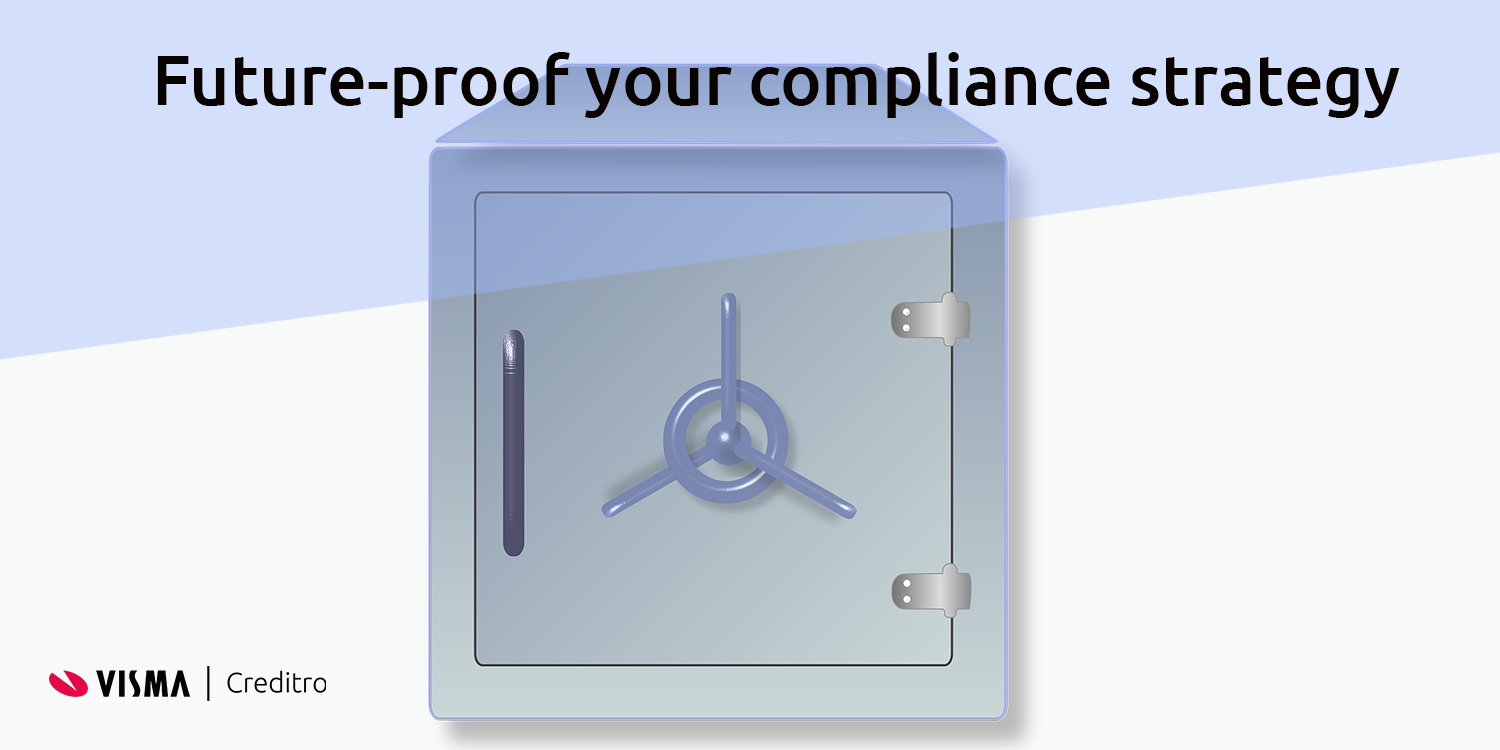1 min read
Creditro takes over KYC from Penneo
As part of Visma’s ambition to build world-class digital solutions, a strategic decision has been made to sharpen the focus of its portfolio...

As our world becomes more complex and increasingly does business across borders, the risks associated with running a business become greater. To stay ahead of the curve, you need a compliance strategy that is agile and able to adapt to the ever-changing landscape.
As the business landscape continues to evolve, it is more important than ever for companies to have a compliance strategy. A compliance strategy helps to ensure that a company complies with all relevant laws and regulations. While no one can predict the future, companies can take steps to future-proof their compliance strategy.
Some tips for future-proofing your compliance strategy include Being proactive about risk management, keeping up-to-date on changing laws and regulations, having clear policies and procedures, and regularly training employees on compliance issues.
Here are three tips to help future-proof your compliance strategy:
It's always better to be ahead of the curve regarding compliance. As companies become more globalised, their compliance strategies must adapt to a changing landscape.
Keep up with changes in the law. This may seem obvious, but it's essential to stay compliant.
New laws and regulations are constantly being introduced, so it is crucial to have a system in place to track these changes and update your compliance strategy accordingly.
Compliance requirements can change quickly, so it's essential to have a team dedicated to keeping up with the latest developments.
Conduct a risk assessment: Understand your company's specific compliance risks. This will help you prioritise which areas to focus on. For example, you may need to focus on anti-corruption compliance if you are a small business in the luxury goods industry.
Regular compliance training is essential for all organisations, especially highly regulated industries. Companies can help reduce the likelihood of costly fines or penalties by ensuring that employees are adequately trained in compliance risks.
For those who work daily within compliance and AML (Anti -Money Laundering), the need for automated processes has become very important. Using a system to systematise and automate specific workflows can also be timesaving. At Creditro Comply, we automate and ensure that all checks and workflows are followed, and that the documentation work is in place in connection with an inspection.
To future-proof your compliance strategy, it is essential to incorporate new ideas and participate in society's digitisation. There are now far more advantages than disadvantages to participating in digitisation – this can be: That you save time and resources and appear more up to date.

1 min read
As part of Visma’s ambition to build world-class digital solutions, a strategic decision has been made to sharpen the focus of its portfolio...

3 min read
When you are subject to AML regulations, there are several tasks you need to complete annually. An annual compliance plan can help you stay on top of...

3 min read
AML compliance can be a hassle, but we don’t think it has to be that way. That’s why we’re proud to finally introduce our new brand, which reflects...